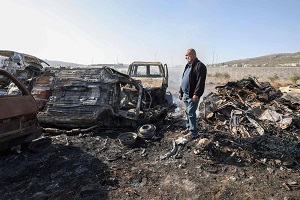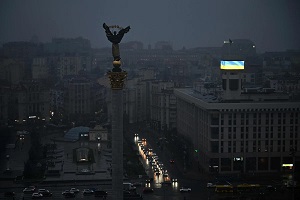More than a technical achievement - By ana Namrouqa , The Jordan Times
The Ministry of Water and Irrigation on Saturday announced encouraging news that it has managed to decrease water loss by 4.4 per cent during the third quarter of this year, bringing down water loss from 45.3 per cent to 40.9 per cent.
It is a luxury to hear good news coming from the water sector, given that we live in a semi-arid country challenged by scarce water resources, rising water demand from a growing population and expanding economy, and, not least, the big elephant in the room – delayed precipitation and an underperforming wet season.
So, when a report comes from the Water Ministry indicating a drop in water loss, it is news to be highlighted and reflected upon, not because it marks the destination we aspire to reach, but because it demonstrates what can be achieved when determination meets strategy.
In its report, the ministry indicated that the decline in water loss was the result of sustained government efforts aligned with the National Water Strategy 20232-2040, which serves as a roadmap for the water sector by blending modernisation, accountability and smarter management of water supply and demand. The ministry indicated that it has deployed and expanded on the use of digital tools for controlling and monitoring the flow of water, improved meter readings to reach an accuracy of 98 per cent, and, most importantly, replaced over one million faulty water meters, half of which in the capital.
But what actually stands out is the fact that the government was able to retrieve this year a total of 31 million cubic metres (mcm) of water under its crackdown on water theft and violations. A total of 10.8 mcm of water has been recovered only during the third quarter of this year, through the government’s campaign against illegal water use, drilling of unauthorised wells and violations on water lines. During this year, the ministry has recorded and addressed 11,500 violations across the Kingdom.
These numbers are not abstract volumes but represent millions of cubic metres of water that would otherwise have been lost, stolen or wasted but are actually flowing to homes, farms and factories.
For a country ranked as the world’s second water-poorest nation, saving every drop of water counts and cutting on non-revenue water is a national gain. However, it is imperative to recognise that 40.9 per cent of water loss remains an extremely high rate and an unsustainable situation, particularly that Jordan is facing climate change, dwindling groundwater and rising demand.
The road ahead is still long and Jordan’s water crisis remains severe. However, what the ministry’s numbers show is that solutions to Jordan’s water crisis do not only lie solely in finding new water resources, but in protecting and wisely managing the scarce water we already have.
In Jordan, water is not merely a resource, it is a matter of national security, economic stability and social resilience. The numbers are far more than a quarterly report or a technical achievement; they are proof that progress is possible and that this momentum must be sustained and built on.
Hana Namrouqa is Deputy Chief Editor of The Jordan Times




